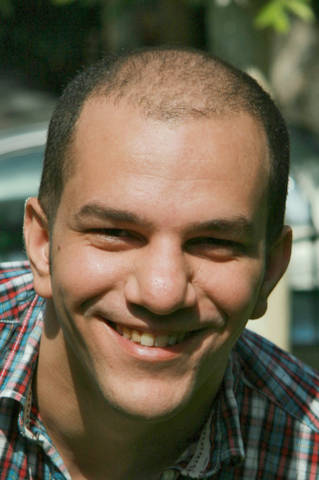The paradox of military-backed civilian rule
By Osama Diab
Supporting a military dictatorship to impose secular ideals is paradoxical and will only perpetuate and entrench the deep state in Egypt.
Tuesday 26 June 2012
The soft military coup currently being orchestrated by the Supreme Council of Armed Forces (SCAF) has the backing of many Egyptians who think that they are supporting “civilian” rule. This is roughly the same group who voted for former Prime Minister and Air Marshal Ahmed Shafiq.
It might sound paradoxical that those who support a civilian state would wholeheartedly back an army man and the ruling military council in the hope of realising their aspirations.
This oxymoron exists partly for linguistic reasons. The words “secular” and “liberal” have become taboo because religious conservatives have denigrated them to mean anti-religion and used this to demonise the secular camp.
We all remember the Islamic preacher Hazem Shuman infamously screaming his lungs out trying to explain to his mosque audience what “liberalism” means. “It means that your mother won't be allowed to wear a headscarf,” he told his audience.
Faced with this kind of pressure, secular Egyptians began using the term “civilian” (“madaniya” in Arabic) as a more socially acceptable way of referring to secularism without actually employing the word. Egypt's deep state, which some are trying to preserve to act as a defence line against Islamism, is neither civilian, for obvious reasons, nor secular, for perhaps less obvious reasons.
Secularism, in essence, means that the state does not impose any system of belief on its citizens. The Egyptian state officially allows its citizens to belong to one of the three main Abrahamic religions: Islam, Christianity, and Judaism, and places enormous obstacles in the way of people wishing to convert from one to the other.
In practice, the situation is even gloomier. The security-obsessed state, which invariably links security to religion, views only adherents of one interpretation of Islam as “safe” citizens. The state only sponsors a moderate and soft Azhari version of Islam; and either bans or keeps a close state-security eye on anyone who diverts from this path, let it be a Salafist, Coptic Christian, atheist, Baha'i, Shiite Muslim, Jew, etc. They are normally treated in state security offices as a threat to the country.
“The security state considers religion and religious minorities, and pretty much anyone who does not follow the officially sanctioned brand of Islam to be a matter of national security” says Karim Medhat Ennarah, a security sector researcher at the Egyptian Initiative for Personal Rights. “How they dealt with them varied depending on various factors. The way state security handled Salafi groups or issues related to Copts was very different from how they dealt with the Baha'i or Shiite minority, which they consider a direct threat to national integrity and security.”
Ugly ideological and religious wars like the ones in Algeria, Ireland, Sudan, Lebanon, Iraq and even in Egypt in the 1990s could be avoided by establishing a political system which allows for everyone to express their ideals peacefully. Political rights would be developed according to a constitution that clearly and unconditionally emphasises these freedoms and a state that is determined and serious about protecting them. Many countries have come to this conclusion after going through costly and bloody conflicts. We should be wise enough to learn from the experience of others rather than learn it ourselves the hard way.
It is about time for proponents of a “civilian state” to stop trying to impose their agenda through the back doors of democracy. The best we, secularists, could do now is to embrace a system that might not be perfectly reflective of our hopes and ideals of equality, but that is reflective of the reality on the street, while negotiating with and pressuring Islamists groups and state institutions to remain neutral politically and religiously and not fall prey to a single ruling party.
Accepting this situation is the price we have to pay for remaining in our philosophical castles in the air. In contrast, supporting a military dictatorship to impose our ideals is paradoxical. It is neither civilian nor secular and will only perpetuate the presence of the deep state, if not further entrench it. It also carries the risk of turning the situation into the very thing it tried to prevent, a broken society that is divided along sectarian lines.
This article first appeared in The Daily News on 24 June 2012. Republished here with the author's permission.


